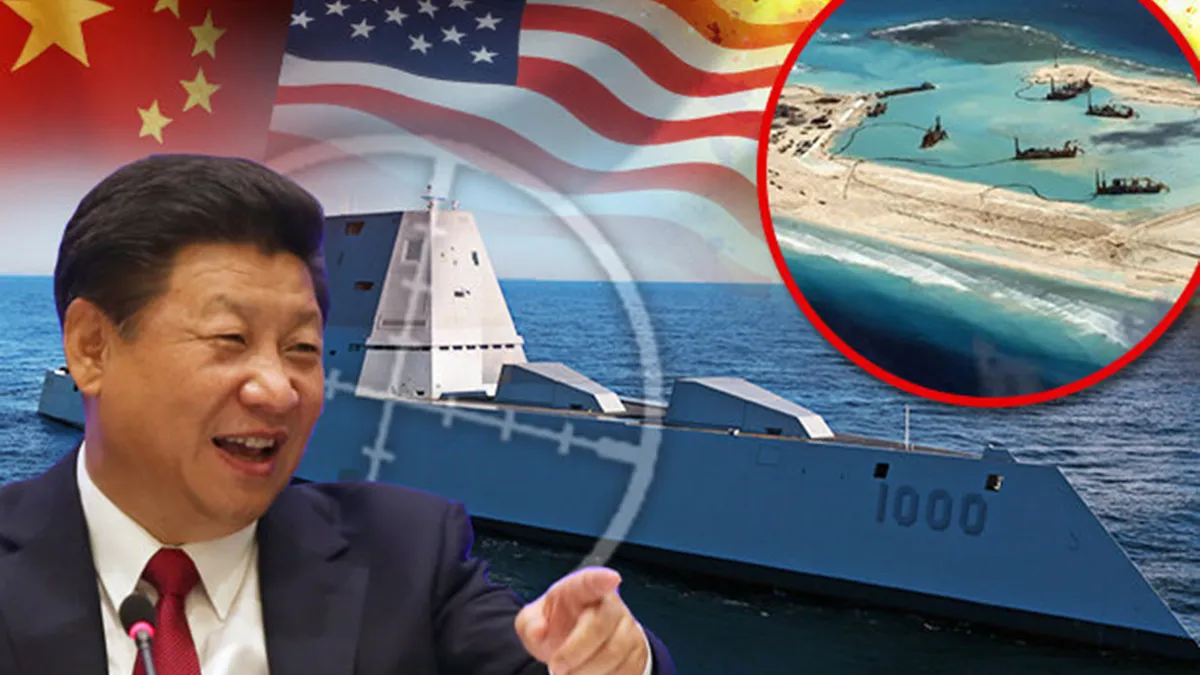Table of Contents
Is China really destined to be the superpower of the 21st century? Is war with China inevitable?
These are two interrelated questions, which, in my humble, non-“expert” opinion, can both be answered, “no”. With important qualifications, of course.
The qualified answer to the first question is, “almost certainly not”. The second is, “hopefully not, but, if it does, probably within the next two years”.
With regard to the second question, the long answer is that China is absolutely determined to annex Taiwan, but it would prefer to do so without resorting to a wider war. To that end, it’s been gearing up its military to colossal proportions. But it also knows that it’s racing against the clock, in two important ways.
Firstly, while China’s main potential enemies are crippled by distraction, that can’t be relied on to last. Just as Carter was replaced by Reagan, it seems almost certain that the feeble Joe Biden will be replaced by a much more assertive Republican determined to restore American greatness. At the same time, China’s neighbours aren’t exactly asleep at the wheel and are tooling up to meet the threat.
So, the short-long answer is, the greatest danger of war with China will likely be within the next two or three years.
The answer to the first question is much less equivocal: China will almost certainly never be a superpower. Once again, China is racing against the clock: the demographic clock set by 70 years of communist rule. Put simply, China is fast getting very old and very male. Certainly, much of the world except Africa is facing an ageing bubble, but China’s tsunami of geriatrics dwarfs anywhere else. China’s sex-imbalance is also one of the worst in the world.
In Mark Steyn’s unforgettable phrase, unless China plans on being the first gay superpower since Sparta, its race is done.
In fact, its power may already be in decline. Not only is its population already tipping over an almost irreversible decline (set to reduce by as much as a third to half, in the next century), but its much-vaunted economic and “soft” power is probably past its peak.
China’s power has declined relative to that of the US, with the Lowy Institute’s annual Asia Power Index finding its growing capacity constraints and falling diplomatic cultural influence provide “no clear path to undisputed primacy in the Indo-Pacific”.
One of the great fallacies of China commentary is the argument that its economy “will soon overtake the US”. What they really mean is that it will overtake where the US is now. But does anyone think the US economy is just going to stand still?
The US again topped the index, drawing away from China by a net 2.1 per cent on the strength of its international coalition building and domestic renewal, and China’s 1.5 per cent rating slump.
Australia’s rating dipped by 1.6 points, but the nation came in at an unchanged sixth position in the regional power table, after the US, China, Japan, India and Russia, ahead of South Korea, Singapore, Indonesia and Thailand.
China’s fall in “comprehensive power” was its first in four editions of the institute’s Asia Power Index, while the US defied a prevailing downward trend to register a 0.6 per cent rise in its rating […]
“Notwithstanding the reality of China’s rise, America remains a highly dynamic superpower,” the Lowy researchers found. “It now tops six of the Index’s eight measures, up from four in 2020. No other country exerts greater, more multidimensional power.”
That’s the vital catch: superpowerdom is multi-dimensional, not just predicated on military or economic power. A true superpower also wields tremendous cultural and diplomatic power. The Soviet Union was a superpower because it was able to export the idea of communism. America was — and remains — a superpower because of its overwhelming cultural power. Millions of people flood to America every year to be part of the American Dream: billions more around the world watch American movies, listen to American music and ape American fashions.
No-one is beating at the doors of China, wanting to get in.
While the Belt and Road Initiative has enabled Beijing to buy the loyalty of governments around the world, it’s not buying hearts and minds. Even more, the Wuhan pandemic in particular has blown much of whatever goodwill the BRI could buy.
At the same time, while it’s been tempting to see the pandemic as a crippling blow to America, it’s actually emerging remarkably unscathed.
The researchers found the pandemic drove down the power ratings of almost all states, weakening their ability to influence their external environment.
The US defied the regional downswing, with a 0.6 per cent rise in its rating, gaining a “remarkable” 15.5 points in its diplomatic influence due to a bounce back in its global relationship-building after Joe Biden’s election.
The Australian
Most importantly, no-one wants to be China.
In his Clash of Civilizations, Samuel Huntington warned that China was simply unable to export its “Sinic civilisation” beyond its borders. Its most powerful neighbours, like South Korea, Japan, Vietnam, India, and so on, are very clear that they are not “Chinese”. Most are close allies, or moving closer, to America.
Thus, China remains a second-rate power even in Asia. Even then, its power is fragile. Historically, its military might has been solely occupied with keeping the communist state in power. As its economic, demographic and cultural clout decline precipitously in the coming decades, its ability to project even its massive military strength beyond its own borders will become even less.
The greatest danger in the next few years is that the Xi regime, knowing that its race is run, will try to strike while it still can.
Please share this article so that others can discover The BFD






![[The Good Oil] March 2026 Political Poll](https://images.unsplash.com/photo-1540910419892-4a36d2c3266c?crop=entropy&cs=tinysrgb&fit=max&fm=webp&ixid=M3wxMTc3M3wwfDF8c2VhcmNofDk1fHx2b3Rpbmd8ZW58MHx8fHwxNzIyMzkxNTI4fDA&ixlib=rb-4.0.3&q=80&w=1304)

